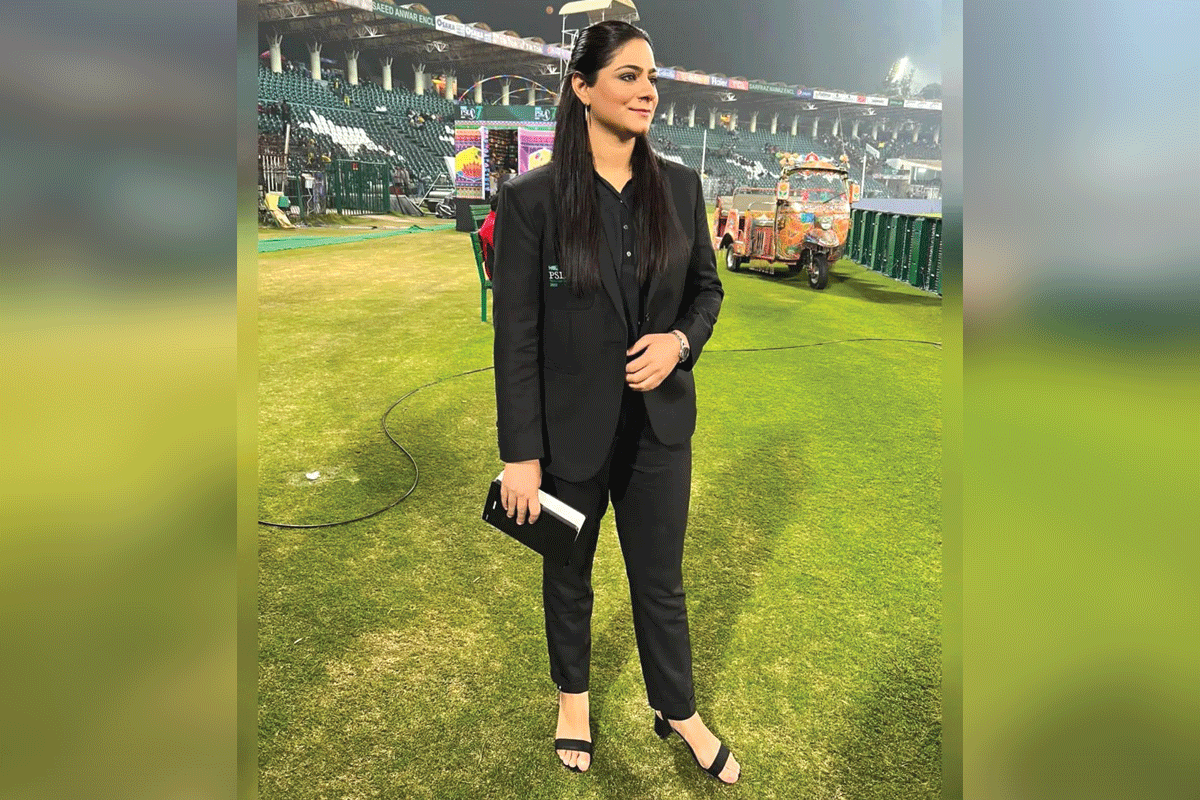
Bol News talked to Marina Iqbal, the former selector, about Pakistan’s substandard run in the Commonwealth Games 2022
Pakistan women’s cricket team had a forgettable campaign in the recently concluded Commonwealth Games 2022. The Girls-in-Green were placed in Group A alongside the debutante Barbados, arch-rivals India and mighty Australia.
The side returned home from Birmingham without tasting a win. The performance disappointed fans, including former selector Marina Iqbal.
“I am definitely disappointed with Pakistan’s performance,” said Iqbal while talking to Bol News. “It is disappointing because they should have done better, keeping in view the opportunities they are getting [at international level], the facilities they are provided with and the amount of cricket they have played.”
The former batter and medium-pace bowler expressed discontent over the team’s loss against Barbados and lack of resilience against India and Australia, adding that these are the teams they have been playing against consistently for four to five years.
She believes that the girls must have done better in the event, given the decent blend of young and experienced players.
“They should have played at least the semi-finals,” she said firmly, adding the output of the team is not reflecting the input.
The mindset problem
The 35-year-old maintained that she had been associated with the team in the capacity of a selector, where she closely watched the hard work being put in by the management and coaches and it feels like it is the mindset that is the major issue. And that mindset is flawed because of a weak cricket structure.
She recalled that after Pakistan’s flop performance in the World Cup, where they even lost to Bangladesh but defeated the West Indies, she talked to captain Bisma Maroof and the head coach David Hemp, and they stated that the tournament was a wakeup call.
Whenever Pakistan compete in a global women’s cricket event, they more often than not fail to make their mark, despite all the effort put in by the authorities.
According to her, the management is trying to work on every aspect of their game, the girls perform all the difficult drills, train hard and are being counselled, but the results do not reflect all that investment.
“It also comes down to the players’ mindset. They need to realise that the game is changing constantly and you cannot win matches by following the old approach,” she said. “We still aim for 200 or 220 in ODIs and 120 to 130 in T20Is, cricket has gone beyond it.”
She believes that to match the international standards, they need to change their mindset and to achieve that, they need to improve their skills so that they can depend on them.
The woman, who represented Pakistan in 36 ODIs and 42 T20Is, stated that there is a massive difference between Pakistan’s domestic and international cricket.
She thinks that the current lot of players have much more to offer, but they get under pressure on big occasions and fail to exhibit a worthy show.
“It is not their maximum capacity,” she claimed. “I have seen them play domestic and practice matches, they adopt a pretty different approach there, which can be implemented in the international arena,” she said.
Marina believes that the long-term and sustainable solution is to beef up the quality of domestic cricket and alongside it, prepare under-19 and Pakistan A teams as well.
However, no one is ready to take this road. Last year, they increased the number of teams in the women’s Pakistan Cup from three to four and it dented the quality of cricket in the tournament big time.
“Last year, we induced four teams in the tournament only because of the added pressure, but the quality of cricket drastically declined. Otherwise, in previous tournaments, the contests went down to the wire,” she said.
The former cricketer is against this narrative and wants the authorities to pay attention to improving the quality of cricket and players, rather than just increasing the numbers just for the sake of it.
“I always emphasise on improving the quality of our domestic cricket,” she stated. “We often hear arguments like the number of teams is not increasing or the pool of players is not getting wider.
“It is fine, it is a byproduct, but we need to work on our underage cricket, need to work in our regions and zones. We only play three tournaments in the whole domestic cricket year and if the quality of cricket is not up to the mark there, players will casually score in those events and make their way to the top. We need to be clear with our aim and what we can want to achieve.”
The cricketers who are selected for the national side following this path usually struggle when they play against disciplined bowling and fielding and they cannot be blamed for this as it is quite natural.
She cited the examples of Gul Feroza and Ayesha Naseem, who both are promising batters and performed well in the domestic circuit. However, when they played wearing Green, both of them struggled.
“Let me quote you an example of Gul Feroza, she was playing brilliantly but when she was selected to play against Sri Lanka, she flopped.
“The gap between our domestic cricket and international is huge. When she didn’t experience that standard ever in her life, how can you expect her to perform at that level?
“Ayesha Naseem suffered a similar fate. She played well at the U18 level, she toured with Pakistan and Pakistan A and when she got a chance, she really couldn’t produce her best, which is quite natural,” she added.

BIRMINGHAM, ENGLAND – JULY 31: Muneeba Ali Siddiqui of Team Pakistan collides with Renuka Singh Thakur of Team India during the Cricket T20 Preliminary Round Group A match between Team India and Team Pakistan on day three of the Birmingham 2022 Commonwealth Games at Edgbaston on July 31, 2022 on the Birmingham, England. (Photo by Alex Davidson/Getty Images)
Experienced players dilemma
On the other hand, there is an argument that it’s fine that new players struggle to match the international standards. However, there are players like the captain Bismah Maroof, Kainat Imtiaz, Nida Dar, Aliya Riaz and Diana Baig, who have been playing for over or near a decade and they still fail to lead the team to victories.
Marina feels these experienced players should play with responsibility; however, on the contrary, they can get complacent, knowing they are irreplaceable.
There is an old saying that there is no substitute for experience. But, if that experience is unable to produce the desired results then that experience is actually of no use.
However, it again comes down to the fact that how many players you have on the bench who can replace those seasoned campaigners.
“Experience is useful only when it is producing results for your team. You give them two, three tours to get their form back if you think they are valuable, but if they are unable to perform, you need to make that hard call of dropping an experienced campaigner,” she said. “If youngsters get quality cricket from the grass-root level, only then you can make these tough decisions.”
Batting debacle
Moreover, when it comes to women’s cricket, there is always a hot debate regarding the avenues women have to hone their skills.
It is often discussed that our batters cannot score freely because of the limited exposure they have before making it into international cricket.
Contrary to that, the side do not face the same issue in bowling. They have produced one of the finest bowlers in women’s limited-over cricket, Sana Mir. Currently, they have Fatima Sana, Anum Amin and Tooba Hassan, who are fine talents.
We do not see a similar kind of firepower in our batting. Ayesha Naseem is rated very highly for her talent, but she is yet to make her mark. Bismah is arguably the best batter produced by Pakistan, averaging 29.20 and 27.44 with a strike rate of 57.44 and 91.11 in ODIs and T20Is, respectively.
“Batting demands hard work and it improves with maturity, if you talk to a male or a female batter, they will tell you that they understood it after 25 years of age,” maintained Marina. “The problem is that we pick young players from domestic cricket, who get confused at the international stage.
“As a batter, you need to learn in different situations, conditions and scenarios. Only match practice can help you with that, you cannot learn it in nets.”
A major issue with Pakistan batting is the run rate and rotation of strike. The former all-rounder pointed out that Pakistan batters wait for loose deliveries for scoring.
On the other hand, players of established teams like England and Australia find different ways of scoring runs and they need to learn this trick from them.
She also brought Bangladesh women’s team into the discussion and mentioned that they have left the Pakistan team behind because they turned their biggest weakness into their biggest strength.
“Their biggest strength is their weakness, they don’t have power hitters, they know their limitations and play accordingly,” she stated. “Pakistan sometimes get over aggressive or just go in their shell. They too need to identify their strengths and then polish their game according to the international standards.”
She further got into detail and highlighted that in the modern days, leagues have a huge role to play in grooming players. Meanwhile, none of the Pakistani players has been a part of any league except Nida Dar, who was a part of the Big Bash League in 2019.
“When you perform at the international level, you are picked by the franchises. When Nida did it, she was recruited by Sydney Thunders to play BBL in 2019. When you don’t perform, you won’t catch any eyes,” she said.
Merit?
As per Marina, the players representing Pakistan on the international stage are the best in the lot. She did not hesitate for a second to endorse that the team selected is totally on merit and these are the best women cricketers in the country.
“Honestly, as long as I have covered matches, this team is on merit,” she claimed. “All the new talented players have been included in the ranks and reliable seniors are also in the team. Yes, the results are not there, so there are question marks. But yes, the team is on merit.”
Solution
Pakistan team have been struggling in recent times. They had a forgetful World Cup, where they played a couple of good matches here and there but their overall performance has been below par.
Though there is not as much criticism on the women’s cricket team as compared to men’s, they are still under pressure.
Marina suggests that the authorities must hold players and coaching staff accountable.
Moreover, the management should ask players about their shortcomings, reservations and challenges. If dropping a few key players can improve the situation, the management should not be shy to do so.
“At times, giving breaks to players can also be beneficial. For the last five years, around 70 to 80 per cent of players are the same, who are playing against every opposition. Therefore, the solution is working on U19 level, A team and domestic cricket, there needs to be a pathway so that you can find suitable replacements,” she maintained.
Message for critiques
Marina understands that fans want their team to win and when they don’t, they criticise them.
However, she believes that this criticism should be positive and contextual. “It is easy to criticise but the majority of the people don’t know Pakistan women’s cricket structure,” she said.
“There must be accountability as they have been representing Pakistan and should perform, but we need to remember our structure and all the scenarios. When we compare these players with others, this is where we get harsh.”
Catch all the Breaking News Event and Latest News Updates on The BOL News
Download The BOL News App to get the Daily News Update & Live News.












 Read the complete story text.
Read the complete story text. Listen to audio of the story.
Listen to audio of the story.